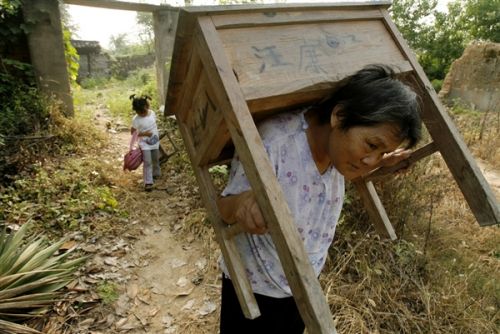

Highlights from the EO print edition, No. 600, Dec 24, 2012
809 Companies Waiting for IPO Approval
News, cover
~ Since the end of September, the number of companies awaiting Initial Public Offering (IPO) approval on the A-share market has increased to 809. This is the largest scale IPO suspension in the history of Chinese securities.
~ Market-based reform on issuance of new shares, which was promoted by the China Securities Regulatory Commission (CSRC), encountered a poorly performing stock market this year. This was one of the main reasons for the suspension of IPO approvals.
~ A source close to the CSRC told the Economic Observer that an oversaturation of IPOs has been one reason for the very bearish stock market. Throughout the year, many have been calling for a halt to the endless stream of new offerings diluting the market.
~ At present, news circulating in investor circles says that IPOs will be re-launched in March next year. A source close to the CSRC said, “The suspension of IPOs is just a temporary countermeasure. The direction issuance system reform won’t change.”
Original article: [Chinese]
Education Spending Surpasses 4 Percent of GDP
Nation, page 11
~ This year, China’s spending on education surpassed 4 percent of its GDP for the first time.
~ In 1993, China put forward a target of gradually raising the proportion of national education spending to reach 4 percent of GDP by 2000. However, over the following 13 years, that proportion remained lower than 3 percent. It wasn’t until 2006 that it reached 3.01 percent.
~ Education spending in 2011 was 1.61 trillion yuan while the 2012 budget will reach 2.2 trillion yuan - a 37 percent increase.
~ So where is all that money going? Different provinces have different priorities. For example, in Yunnan province, the most urgent need is the improvement of school buildings. There are currently 7.4 million square meters of dangerous school space that need to be demolished and rebuilt. Guangdong Province is focusing on vocational education investment, while Shanxi Province is emphasizing pre-school education.
~ Yang Dongping (杨东平), head of the 21st Century Education Institute, believes that achieving the 4 percent target doesn’t mean all the education sector problems have been solved. Some students in regions like Hunan and Hubei provinces still bring their own desks to school or lack nutritious lunches and winter clothes. Even developed regions like Shanghai and Beijing, have trouble getting all children to kindergarten.
Original article: [Chinese]

Yiwu Christmas Industry Takes Hit
Nation, page 12
~ 2012 has been a rough year for companies making Christmas products in Yiwu. According to the Yiwu Christmas Arts & Crafts Industry Association (义乌圣诞用品行业协会), exports have declined 25 percent for companies in the industry this year. If it weren’t for the growing domestic market, as well as growth in markets like Russia, South Africa and South America, the situation would have been even worse.
~ This year Yiwu carried out some new trade measures. With one new policy, two self-employed businessmen can apply to start a foreign trade corporation with registered capital of 30,000 yuan.
~ The “Zero Thresholds” policy, which aimed to make starting a business easier in Yiwu, has resulted in fiercer competition. In 2009, there were about 280 companies manufacturing Christmas products, but now there are over 750.
~ The way in which foreign businessmen purchase products has also changed. With concerns about overstocking and appreciation of the yuan against the dollar, foreign clients are starting to split large deals into smaller ones.
~ To cope with the challenges, China Commodity City in Yiwu has opened an online mall called Yiwugou (义乌购). Unlike most online malls, Yiwugou is focused on brick-and-mortar stores. Customers can look through videos and purchase from over 30,000 merchants.
Original article: [Chinese]
Chinese Liquor Companies Endure Gloomy Year
Corporation, Page 27
~ On Dec 18, Chinese liquor rivals Kweichou Moutai (贵州茅台) and Wuliangye (五粮液) held their national sales conventions on the same day. Both companies are facing a gloomy outlook for the entire industry.
~ According to a source from Vats Liquor Chain Store (华致酒行), in the past few years their sales volume of liquor has increased by over 80 percent every year. But this year, there’s much more pressure. At conventions, dealers from different provinces all complain about excess capacity and reduced demand. Stricter rules regarding government leaders and official banquets, coupled with an overall economic slowdown in China, have hit liquor companies hard.
~ To deal with the situation, Wuliangye is taking a relatively radical measure by shaking up its marketing office. Zhu Zhongyu (朱中玉), vice president of Wuliangye, said that the company should push through structural reform and marketing reform simultaneously. Marketing will be the main emphasis in 2013 with over 200 people joining the marketing department. Wuliangye also intends to raise prices.
~ Maotai is taking a more conservative approach and planning to weather the weak market without making any radical changes. Yuan Renguo (袁任国), president of the company, said that they must be steady and carry on. He says dealers who give in to pressure to unload inventories at low prices will be banned from working with the company. For a bottle of Feitian Moutai (飞天茅台) which has alcohol content of 53 percent, the retail price should not go below 1,519 yuan and the bulk price should remain above 1,400 yuan.
Original Article: [Chinese]

